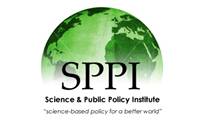News / Politics
Prejudiced Authors, Prejudiced Findings
Did the UN bias its attribution of “global warming” to humankind?

A new paper released by the Science and Public Policy Institute, a Washington, DC think tank, strongly suggests that the Intergovernmental Panel on Climate Change (IPCC) is a single-interest organization whose charter presumes a widespread human influence on climate, rather than consideration of whether such influence may be negligible or missing altogether.
The paper, Prejudiced Authors, Prejudiced Findings, presents evidence that the IPCC’s selection of its chapter authors appears so prejudiced towards a predetermined outcome that it renders its scientific assessment of the climate suspect and its conclusions inappropriate for policy making.
The paper by Australian researcher, John McLean, found that “more than two-thirds of all authors of chapter 9 of the IPCC’s 2007 climate-science assessment are part of a clique whose members have co-authored papers with each other and, we can surmise, very possibly at times acted as peer-reviewers for each other’s work. Of the 44 contributing authors, more than half have co-authored papers with the lead authors or coordinating lead authors of chapter 9.”
"This is scientific cronyism at an alarming level. Instead of having a diversity of views from a wide range of scientists, the chapter is written almost exclusively by climate modelers speaking with one voice. The world is being driven by a group with strong vested interests and despite the highly questionable capabilities of their models," said McLean.
Added Christopher Monckton, SPPI policy adviser, “Many scientists have long suspected that the IPCC fails to select its chapter authors with balance and fairness to all viewpoints in mind. This paper very clearly demonstrates the extent of the prejudice, in two ways: first, by showing the numerous links between the clique of authors, and secondly, by showing the numerous downright errors in the authors' approach – errors which would not have occurred in such numbers if the views of those who do not share the supposed ‘consensus’ had been taken into account.”
The paper comes on the heels of another just published paper casting serious doubt on the assumptions of the same clique of IPCC climate modelers who populate its periodic Assessment Reports. That paper provides plausible reasons why the IPCC’s estimates of climate change may be excessive and unsafe. More importantly, its concludes that, perhaps, there is no “climate crisis”, and that currently-fashionable efforts by governments to reduce anthropogenic CO2 emissions are pointless, may be ill-conceived, and could even be harmful.
Contact: Robert Ferguson, Science and Public Policy Institute http://www.scienceandpublicpolicy.org/
202-288-5699
